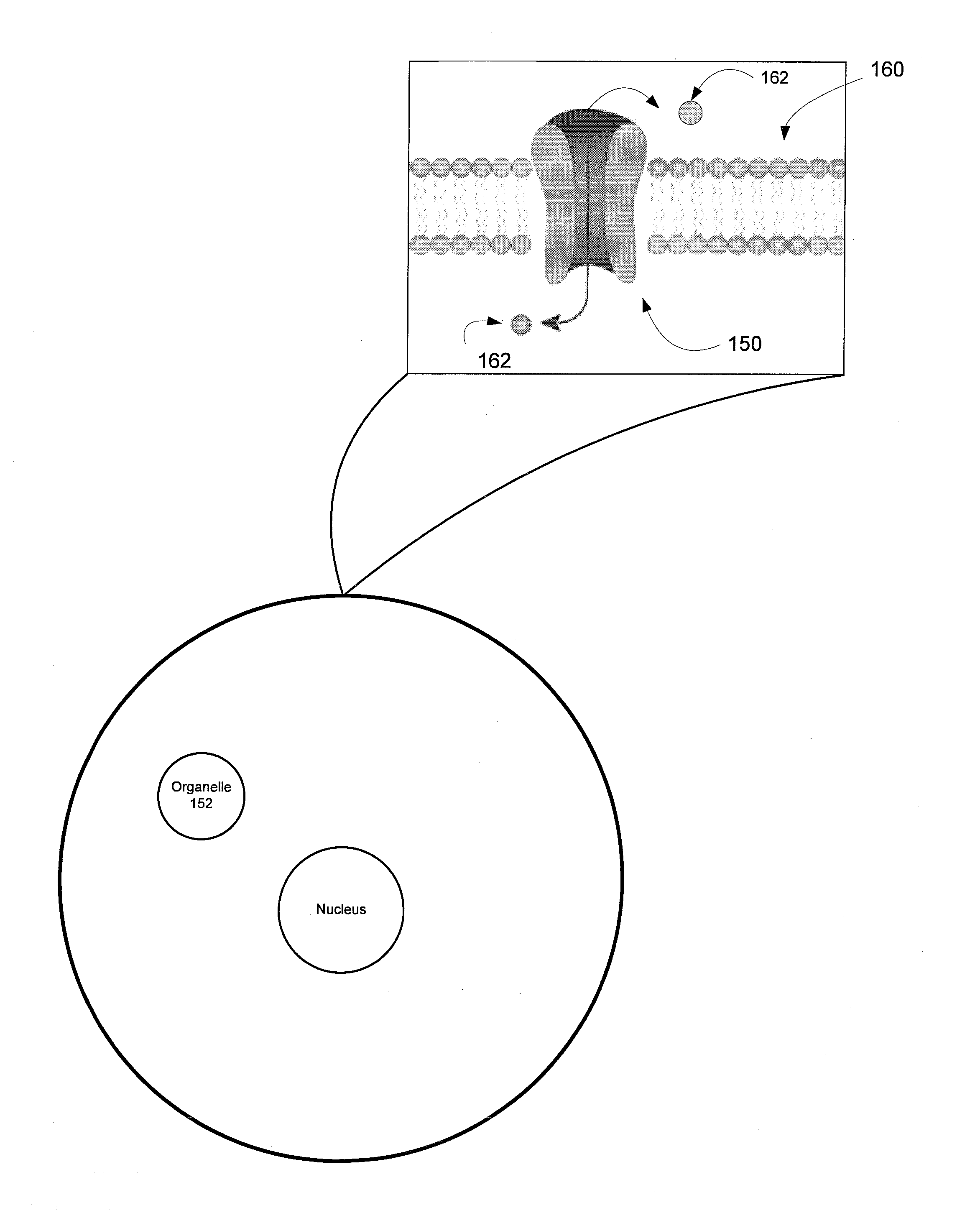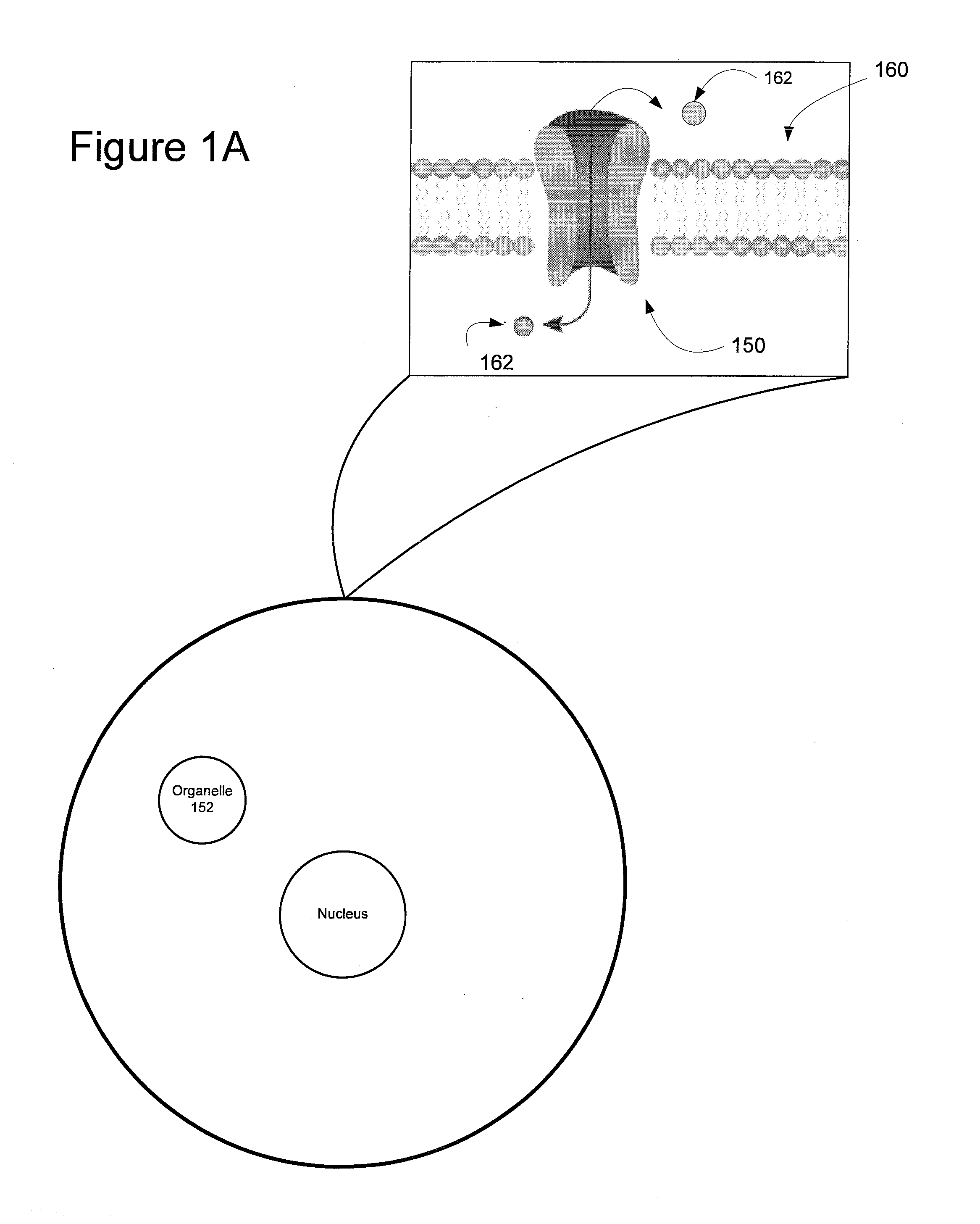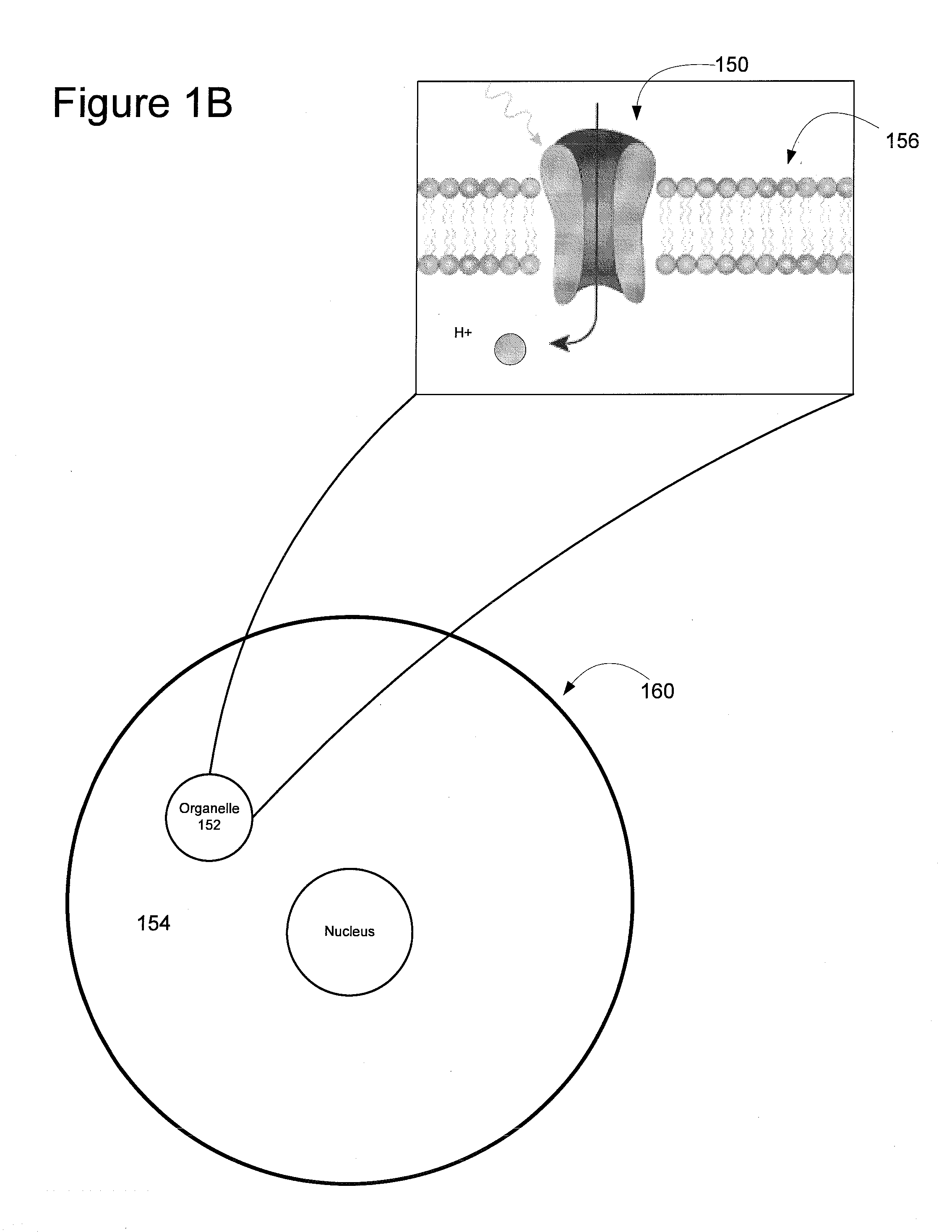Light-Sensitive Ion-Passing Molecules
a light-sensitive ion-passing molecule and target cell technology, applied in the direction of viruses, peptides, drug compositions, etc., can solve the problems of difficult neuromodulation, difficult to achieve neuromodulation, and the distribution of neurons responsible for a given mental process, so as to and reduce the probability of depolarization in the cell
- Summary
- Abstract
- Description
- Claims
- Application Information
AI Technical Summary
Benefits of technology
Problems solved by technology
Method used
Image
Examples
examples
[0303]According to certain embodiments, subcellular and transcellular trafficking strategies now permit (1) optical regulation at the far-red / infrared border and extension of optogenetic control across the entire visible spectrum; (2) increased potency of optical inhibition without increased light power requirement (nanoampere-scale chloride-mediated photocurrents that maintain the light sensitivity and reversible, step-like kinetic stability of earlier tools); and (3) generalizable strategies for targeting cells based not only on genetic identity, but also on morphology and tissue topology, to allow versatile targeting when promoters are not known or in genetically intractable organisms. These results illustrate the use of cell-biological principles to enable expansion of the versatile fast optogenetic technologies suitable for intact-systems biology and behavior.
[0304]Specific aspects of the present disclosure are directed to applications of molecular trafficking strategies, to de...
PUM
| Property | Measurement | Unit |
|---|---|---|
| wavelengths | aaaaa | aaaaa |
| wavelength | aaaaa | aaaaa |
| wavelength | aaaaa | aaaaa |
Abstract
Description
Claims
Application Information
 Login to View More
Login to View More - R&D
- Intellectual Property
- Life Sciences
- Materials
- Tech Scout
- Unparalleled Data Quality
- Higher Quality Content
- 60% Fewer Hallucinations
Browse by: Latest US Patents, China's latest patents, Technical Efficacy Thesaurus, Application Domain, Technology Topic, Popular Technical Reports.
© 2025 PatSnap. All rights reserved.Legal|Privacy policy|Modern Slavery Act Transparency Statement|Sitemap|About US| Contact US: help@patsnap.com



